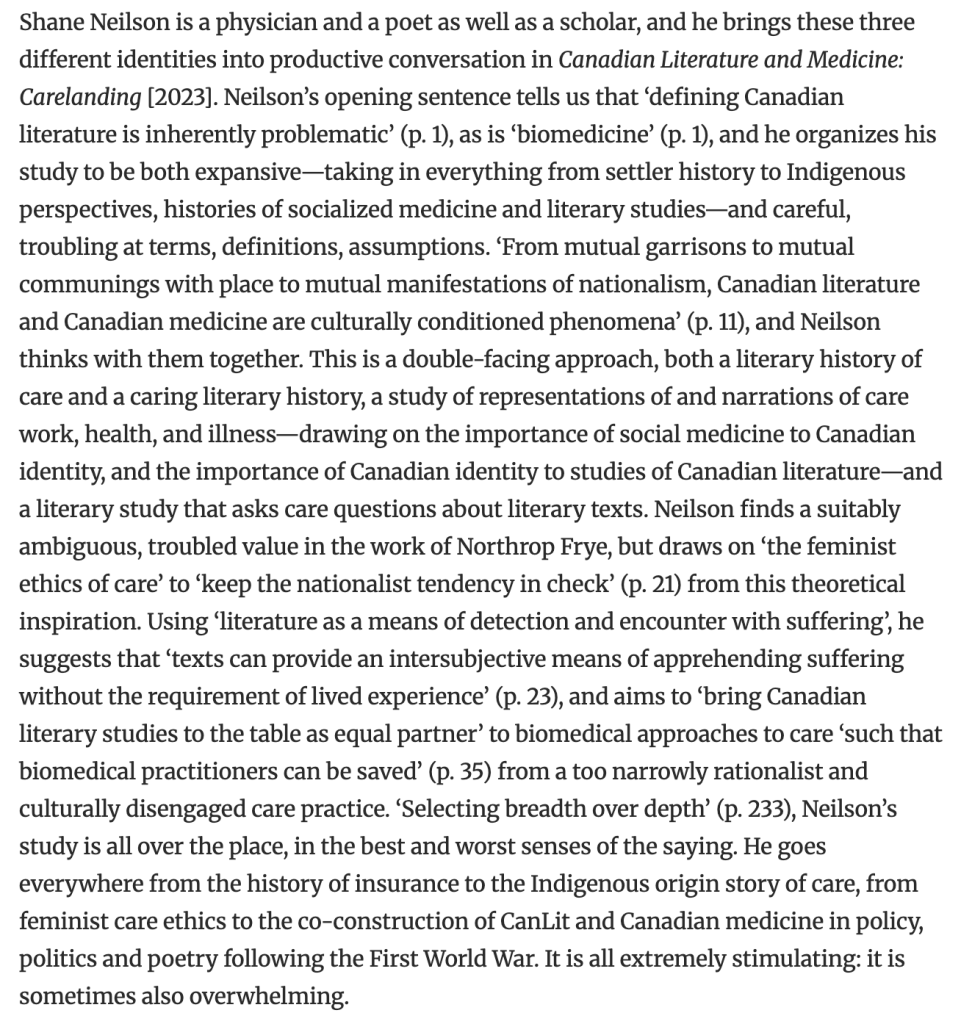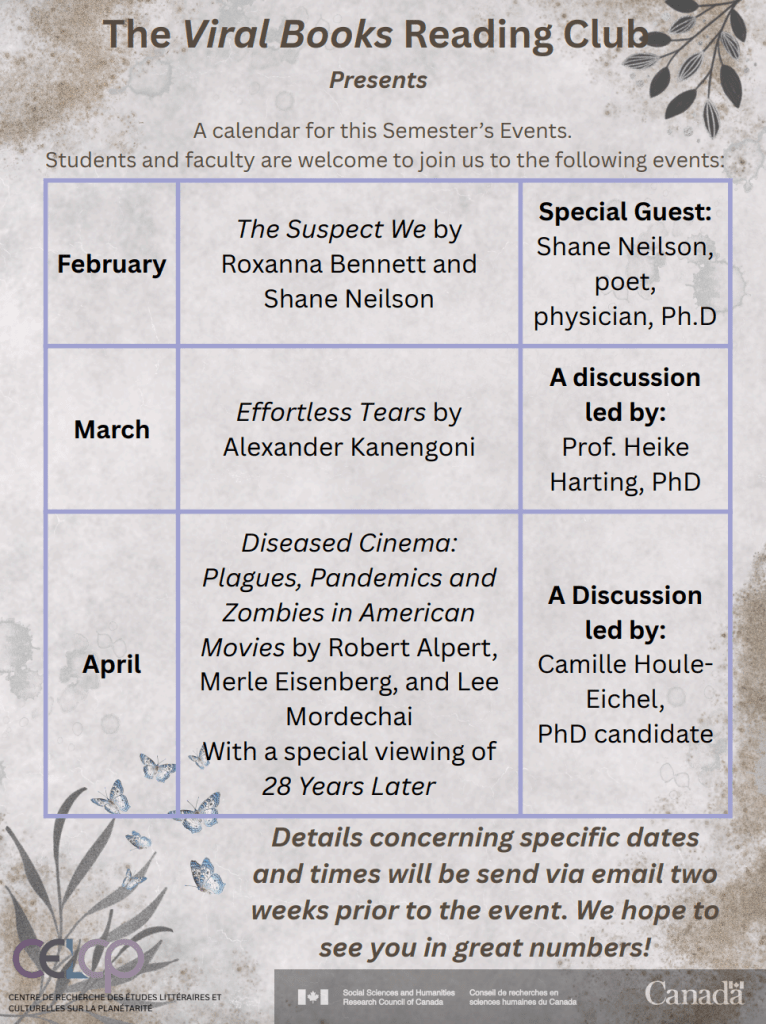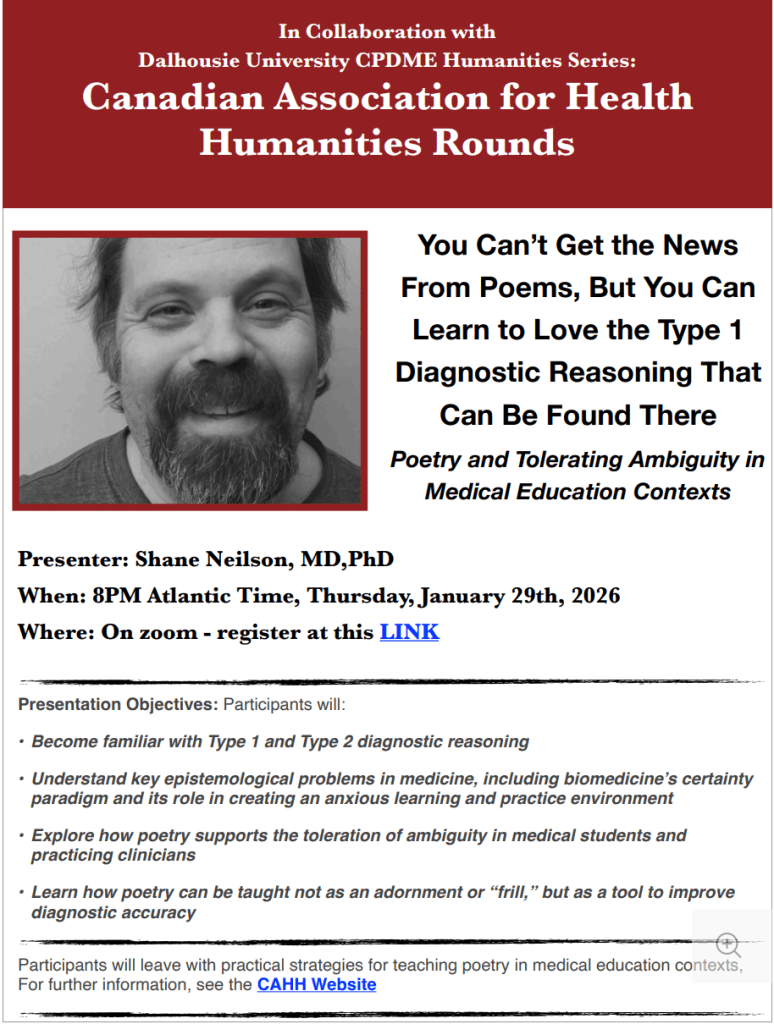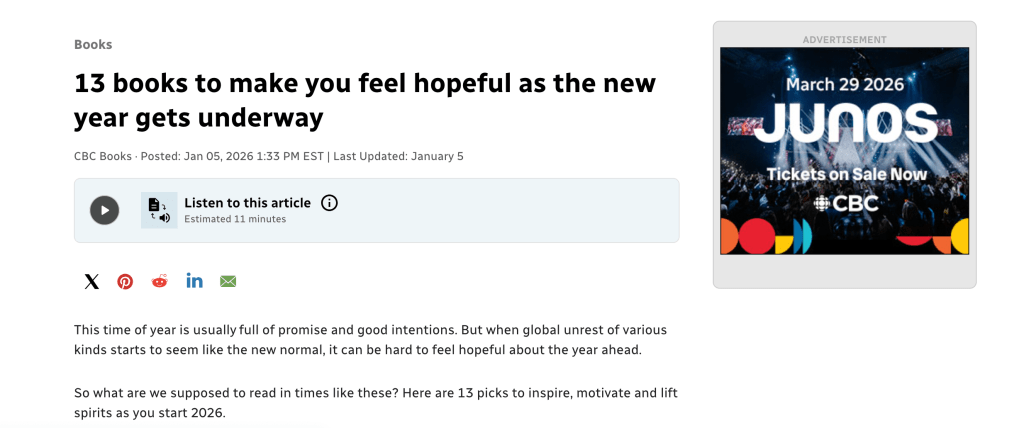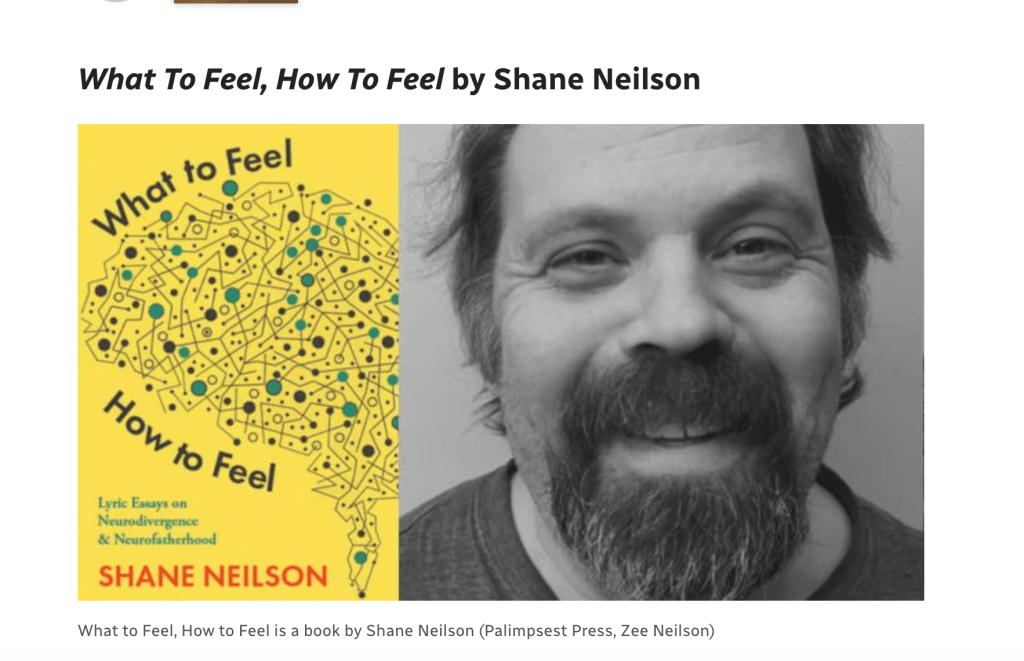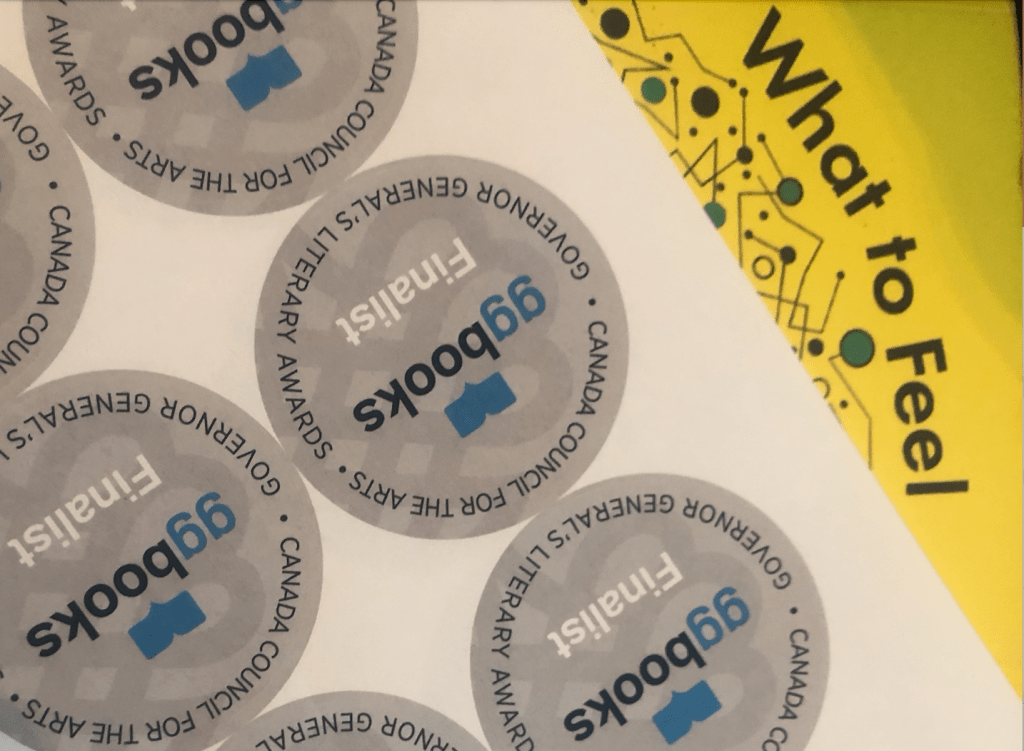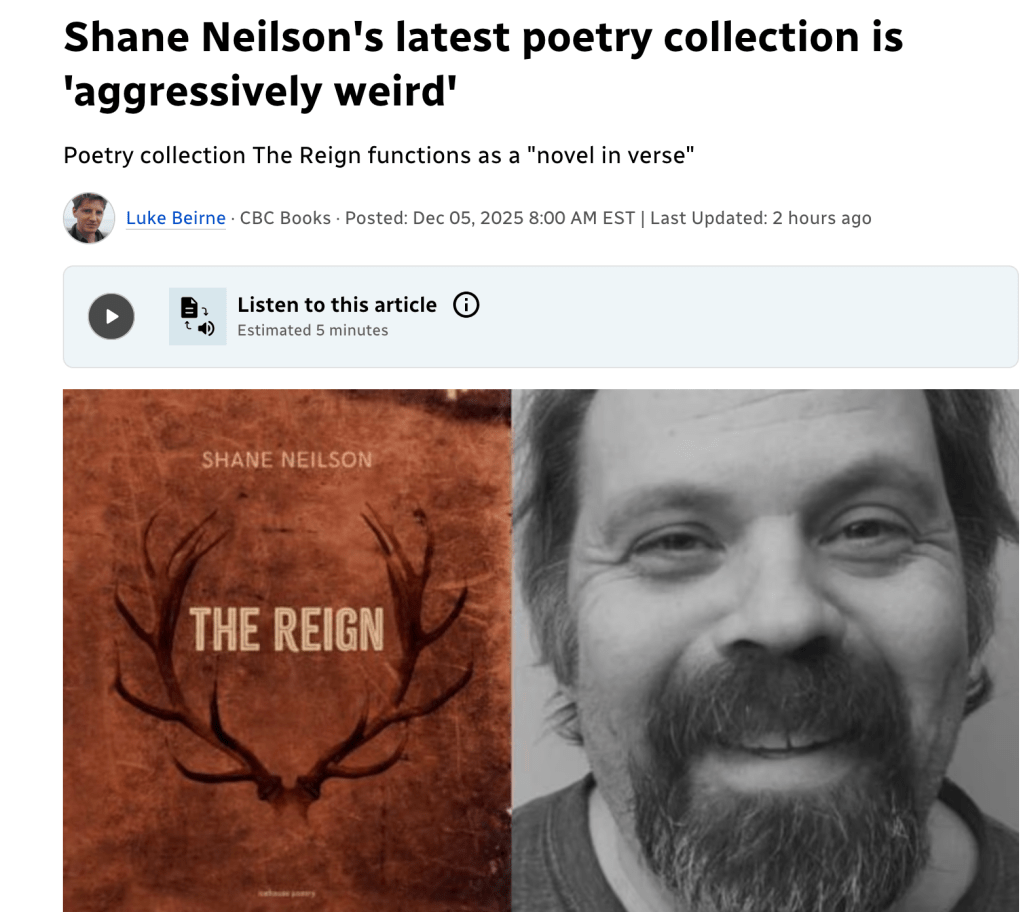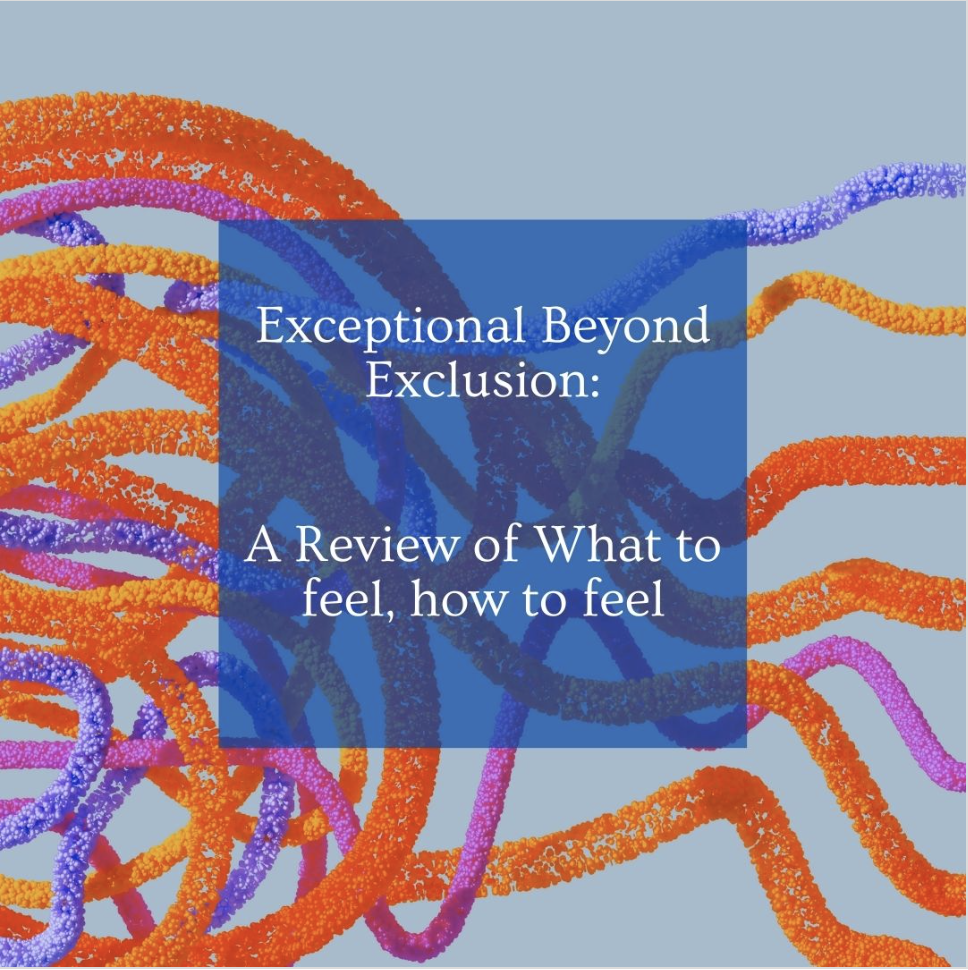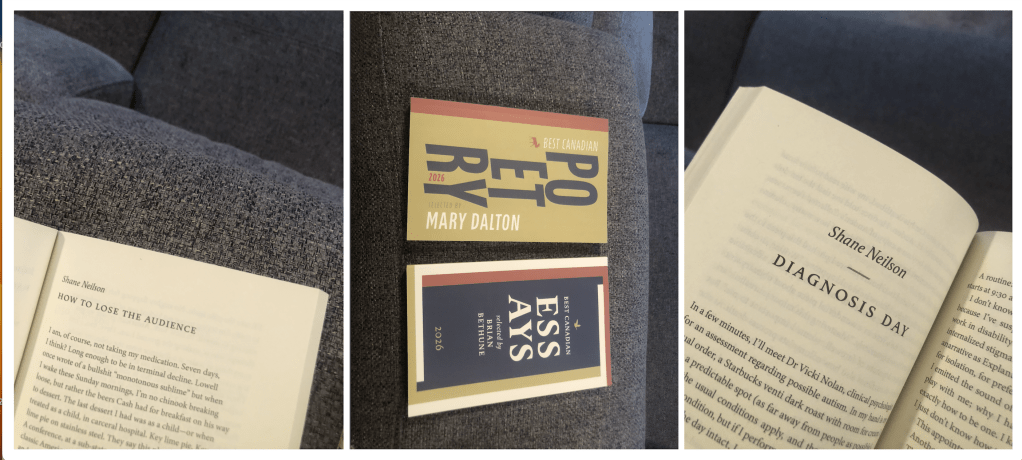One publishes an academic book hoping for it to find purchase in the world, but it can be very hard to tell. Carelanding: Canadian Literature and Medicine (Routledge, 2023) had no reviews, until now! My favourite thing about the review is that it TOTALLY gets me. I laughed out loud near the end and said, JUST SAY I’M AUTISTIC! Like, a review that says I’m autistic without saying I’m autistic. I’m so grateful. Guilty as charged! Thank you Talia and Dougal, I cannot IMAGINE how much work went into this roundup. I hope you escaped the curse and never have to do it again 🙂 https://academic.oup.com/ywes/advance-article-abstract/doi/10.1093/ywes/maaf111/8484061?redirectedFrom=fulltext
